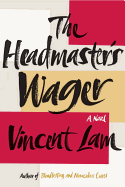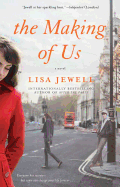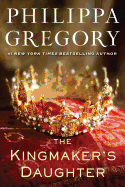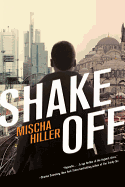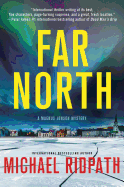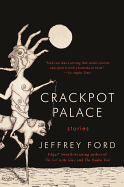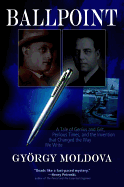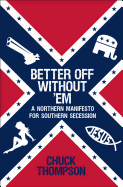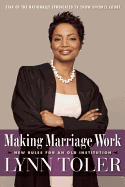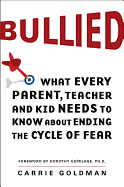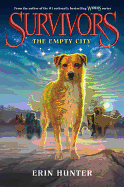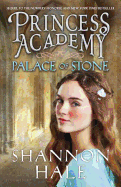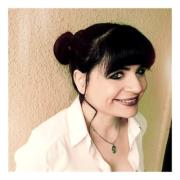 Tiffany Reisz's books inhabit a world where romance, erotica and literature meet and do immoral and possibly illegal things to each other. She describes her genre as "literary friction," a term she stole from her main character, who gets in trouble almost as often as the author herself. Reisz's debut novel, The Siren, was published by Mira on July 24, 2012. Reisz describes it as "not your momma's Thorn Birds." Reisz lives in Lexington, Ky.
Tiffany Reisz's books inhabit a world where romance, erotica and literature meet and do immoral and possibly illegal things to each other. She describes her genre as "literary friction," a term she stole from her main character, who gets in trouble almost as often as the author herself. Reisz's debut novel, The Siren, was published by Mira on July 24, 2012. Reisz describes it as "not your momma's Thorn Birds." Reisz lives in Lexington, Ky.
On your nightstand now:
Priests: A Calling in Crisis by Father Andrew Greeley. Why would a BDSM erotica writer have a book about the modern Catholic priesthood on her nightstand? Read The Siren and then you won't have to ask.
Favorite book when you were a child:
Every summer for years, I'd wait for a hot and rainy day, curl up in the air conditioning inside the house and read every single book in The Chronicles of Narnia by C.S. Lewis as thunder and lightning danced outside the walls. Apocalyptic weather seemed the best background music for books that seemed so utterly cosmic to me. They are then and now nearly as sacred to me as the Bible itself.
Your top five authors:
Best genre writer: Anne Rice (don't argue with me on this because you will not win. She did the best erotica and the only original vampire novel since Dracula).
Best Kentucky writer: Robert Penn Warren. Nobody ends chapters like Robert Penn Warren. I can quote chapter endings from All the King's Men from memory. "Little Jackie made it stick." And so did Robert Penn Warren.
Best women's fiction writer (a term I loathe): Haven Kimmel. The Solace of Leaving Early changed me (for the better I hope although the jury's still out.)
Best nonfiction author I'm not dating: Anne Lamott. When my faith needs a balm or my writing a kick in the pants, I can always turn to this dreadlocked prophetess for the inspiration I need. We Christians Who Say the F-Word need to start our own denomination.
Best nonfiction author I am dating: Andrew Shaffer, whose book Great Philosophers Who Failed at Love introduced me to his intelligence and sharp wit long before we met face to gorgeous face. His book might be about losing at love but he wins in my book. (And his book Fifty Shames of Earl Grey, a parody of you-know-what, is just out.)
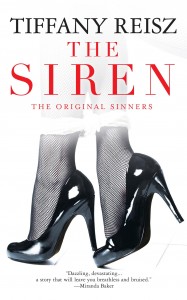 Book you've faked reading:
Book you've faked reading:
In high school, I was supposed to read Crime and Punishment. "Supposed to" is the operative phrase in the previous sentence.
Book you're an evangelist for:
The Keep by Jennifer Egan. I put my money where my mouth is with this beautiful book about the power of imagination and the freedom that writing brings. I've bought and given away at least four copies of the book. I'll keep doing it until the entire world has read this book.
Book you've bought for the cover:
The Last Girl by Kitty Thomas. This cover is almost as weirdly wonderful as Kitty's stories.
Book that changed your life:
This honor goes to a trilogy: The Sleeping Beauty Chronicles by Anne Rice. At age 16, I started reading these books after four straight years of reading sweet Regency romances and light fantasy novels. Nothing I've read or written has been the same since.
Favorite line from a book:
I learned from Lee Smith how a good writer can turn an entire story on a dime. You'll think you're reading one kind of book and then one line will reveal you've crossed the border into foreign territory. The book Saving Grace seems to be about a little girl in the south traveling with her devout parents--her quietly spiritual mother and her preacher father. A cozy beginning, sweet and bucolic... until you get to this line at the end of a scene when the little girl Grace is trying to fall asleep one night, and you discover Daddy isn't the simple country preacher you thought he was: "Sometimes I'd hear the serpents rattling in their boxes under our beds, but I was used to the sound, and finally it would put me to sleep."
Book you most want to read again for the first time:
A Wrinkle in Time by Madeline L'Engle. Every writer has that one book, that first book, that one special story that blew their mind open as a kid that elevated reading from a pastime to something almost spiritual or magical. The story of the tesseract and of misfit children using love to fight cosmic evil was the one that did it for me. I would write middle grade fiction if I could, but a book for children requires a kind of wisdom I don't yet possess.
Fave book on writing:
I tell all aspiring writers to read Stephen King's On Writing. Don't bother reading a book about the craft of writing by some Ph.D. you've never heard of. If you want to learn how to write a bestseller, read the book on writing by the man who's done it--50 freaking times.
Book Brahmin: Tiffany Reisz



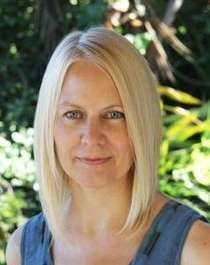 Kim Fay
Kim Fay
 Book you've faked reading:
Book you've faked reading: